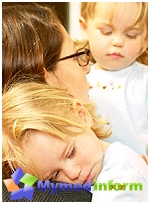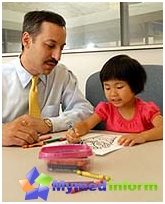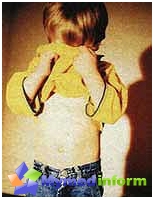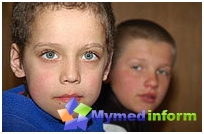The death of a loved one is one of the most difficult events in life. Therefore, children experiencing mountains associated with the loss of relatives, loved ones, need a special approach, support.
Content
Adults often experience confusion and confusion, not knowing how and how to help the child in this situation, without having a submission not only about how to behave in relation to a child who lost someone from loved ones, but also how and how and How acute it is experiencing loss.
Parents, educators, teachers should know how in the framework of the usual everyday life to help the child to survive the mountain, support it, prevent the development of neurosis. Appeal to specialists is recommended only when funds offered below are not triggered or insufficient.
What is the features of children's grief?
If in the family grief, then you need the child to see it and could express it with everyone. No need to try to pretend that nothing happened, and life flows as her. We all need time to get used to living without a loved one.
This does not reduce emotional shocks and does not guarantee from unexpected and tragic reactions, but it allows to prevent the emergence of deep fears that can lead to severe psychological problems many years later. At this difficult time to children, first of all, support is required, a demonstration of love and care.
The period of acute experiences of grief in a child is usually shorter than an adult (tears are often replaced by laughter), but when a collision with new life situations, his grief revives again: «On the first day at school, I saw that everyone came with moms and only I came with dad».
Shock - the first response to death. In children, it is usually expressed by silent care or explosion of tears. Very often small children may experience a very painful feeling of discomfort, but not shock. They do not understand what is happening, but they feel good atmosphere in the house.
Entertainment (take on the hands to buy a toy or sweetness, turn on the TV) It turns out not the best policy in such a situation. It acts temporarily and does not help to cope with the grief, but only for a while distracts attention. Hug a child, let him relax, cry, sit or lie down, but do not go across it as if he hurts his teeth.
He needs time to mess around, talk about mother, father, brother or sister. If the child is big enough, let him be welcomed in cooking for a funeral, and he will not feel lonely among the sad and engaged adult affairs.
Denial of death - Next Stage of Experience. Children know that a close man died, saw him dead, but all their thoughts are so focused on it that they could not believe that he was no longer near.
Search - For a child, this is a very logical stage of grief. He lost someone, now he must find him. The impossibility of finding the fear. Sometimes children are experiencing these searches as a game of hide and seek, visually represent how the deceased relative enters the door.
Despair - It comes when the child is aware of the impossibility of returning the deceased. He again begins to cry, scream, reject the love of other people. Only love and patience can overcome this condition.
Anger It is expressed in the fact that the child is angry with his parent who is his «left», or on God, «Children» Father or Mother. Little children can start breaking toys, arrange hysterics, kneading legs on the floor, teenager suddenly ceases to communicate with her mother, «never» beats the younger brother, rude teacher.
Alarm and feeling of guilt lead to depression. In addition, the child can disturb various practical questions: who will accompany him to school? Who will help with lessons? Who will give pocket money? For older children, the death of the father may mean the inability to continue studying and t. NS.
How to help a child suffering?
 First of all, it is necessary that the experience is divided by all family members. Many agree that it is desirable to accept mourning by all family members, including children (maybe besides preschoolers). This co-experience, understandable to every member of the family.
First of all, it is necessary that the experience is divided by all family members. Many agree that it is desirable to accept mourning by all family members, including children (maybe besides preschoolers). This co-experience, understandable to every member of the family.
The most difficult for adult is to inform the child about the death of close. Best if someone from native. If it is impossible, then the adult must notify that the child knows well and which he trusts.
At this point it is very important to touch the child: to take his hands in your own, hug, take it on the hands. The child must feel that he is still loved, and that he will not reject. It is also important that the child does not have a feeling of guilt due to the death of close.
A child can demonstrate anger outbreak in relation to an adult who brought the sad news. Do not at this point to persuade the child to take yourself in hand, for grief, not experienced on time, can return months or years later.
Older children prefer loneliness at this moment. It should not argue with them, pester them, their behavior is natural and is a kind of psychotherapy.
Child needs to surround physical care, prepare him food, hold the bed and t.NS. No need to take a duty of adults during this period: «You are now a man, do not disgust my mother with my tears». Depriving tears is unnatural for the baby and even dangerous. But do not and make a child cry if he does not want.
In the period of grief in the family should not be isolated a child from family worries. It is desirable that the child spoke about his fears, but it is not always easy to induce him. The needs of the child seem to us obvious, however, few of the adults understand that the child needs recognition of his pain and fears, he needs to express his feelings due to the loss of a loved one.
In this regard, there is an interesting and useful experience. You can, for example, to assemble a group of adolescents who have lost their parents so that they can say all this. According to the methodology of holding such meetings, the teacher-psychologist does not participate in the conversation until they ask him about it.
The guys it is important to feel at equal. At first, they with distrust refer to such a group, but, starting to speak, they discover much in common in feelings and problems. Talking, sometimes painful, however, help adolescents to cope with fears, clarify their own thoughts.
It is believed that after the funeral, the life of the family comes back to normal: adults are returned to work, children - to school. It is at this moment that the loss becomes the most acute. In the first days after the tragedy, children know that it is legitimate any manifestation of feelings. After time, there may be phenomena such as enuresis, stuttering, nail binding, drowsiness or insomnia. It is impossible to give a recipe for each specific occasion. The main thing is to proceed from the need of a child in love and attention to it.
If the child refuses to eat, you can invite it to help adults to cook lunch for the whole family.
How to remove aggressive behavior?
Little children can give various boxes, boxes, cylinders, paper that can be mine, breaking and smash. Older children can be entrusted to physical work requiring significant efforts, or send them to a long walk on foot or by bike.
However, it should be borne in mind that in a large family a kind of competition may arise: who expresses her anger more stronger. All of the above does not exclude that it is impossible to let the child go in this too far. It is impossible to allow one child to be allowed absolutely all to the detriment of other children.
For many months, even the first year after the death of a loved one, sharp emotional outbreaks will overshadow such events as holidays, birthdays. Loss is not forgotten, but the strength of expression of emotions is usually weakening.
Usually parents try to avoid appeal to the psychiatrist. It happens on the contrary: with the slightest suspicion of the unusualness of the child's behavior, parents are thrown to the doctor, while help is required by them, not a child.
As alarming symptoms, you can select the following:
General Council: Alerting the delayed experience of grief, too prolonged or unusual concern. Always disturbing the absence of experiences.
The teacher often turns out to be helpless when it comes to the need to help the child to survive grief. Meanwhile, the school and teacher can play a decisive role: after all, the school is a huge part of their daily life.
After any tragedy, the usual daily responsibilities may support, create a feeling of comfort and security, and sometimes bring relief. The situation at school is sharply different from the domestic atmosphere.
Usually recommend that children return to school, if possible, faster after the funeral. Nevertheless, all this is very individual. The child is often afraid to leave the parent of one, it seems to him that the father or mother will die, remaining at home alone. In this case, it is advisable to go to the child to meet, allow him to stay at home for some time so that he calms down and made sure that the parent is not going to die.
Return to school can be difficult. Meeting with teachers and comrades requires famous courage. Surviving Mount People know how sometimes any words of even kind familiar are perceived. Meanwhile, children, not very sensitive at normal time, behave much more naturally and benevolently towards their suffering from a comrade than adults in relation to his parent. However, teachers must ensure that the child is not teased and did not go.
When a child comes to school, the teacher must tell him that he knows about his grief so that he does not feel indifferent from the teacher. The school should be a suitable place where the child could come if necessary, if he wants to be alone or cry.
Sometimes someone from older children can be appointed «guardian» such a child; Perhaps it will be someone who has similar experience and maintaining a child if necessary. Parents and the whole family also require support. It is important to know what exactly and in what volume they told the child about the loss.
The parent absorbed by his own experiences often loses contact with the child, and teachers usually turn out to be the first to notice the symptoms of disadvantage. The task of the teacher is not to wait for a tragedy, and talk to a child about death when such an opportunity.
Even with elementary school students need to talk about so «Forbidden» things like theft, lie, illness, hospital, death. This teacher shows children that you can talk about anything. If the teacher avoids such topics, the child, with whom the trouble happened and who wants to ask questions, share his experiences, does not see anyone to whom he could contact.
By the time the child finishes primary school, he must have the concept of death as part of life. Teachers have many opportunities to deliver the problem of death in this way.
In one school, the teacher took advantage of the death of the beloved of all the children of the rabbit. One of the teachers wanted to remove the rabbit at night, but the other insisted that children should see him, put in the box and bury - very simple, without any ceremonies, during change. They chose a place under the tree, the children brought plants and put them on his grave.
The teacher suggested them to make a book about their rabbit: Inclose photos, drawings, stories about rabbit. They calmly and without unnecessary emotions made a very beautiful book about the rabbit: the lesson was absorbed, the memory will live, and conversations about the sad event will help to come to terms with a loss.
 Watch the changes in the behavior of a child who lost someone from. In the first weeks, a tendency to care, aggressiveness, angry, nervousness, closure, inattention. Treat this with patience, never show your surprise.
Watch the changes in the behavior of a child who lost someone from. In the first weeks, a tendency to care, aggressiveness, angry, nervousness, closure, inattention. Treat this with patience, never show your surprise.
If the child wants to talk, take time to listen to him. It is not always easy to do, and still try. Explain to the child what you want to talk to him, choose a convenient time for this. When talking, listen not only to ears, but also eyes, and heart. Hug a child, take him by the hand.
Touch has a great importance for a child, because he lost the heat of a loving parent. This allows the child to feel that you take care of him and at any time are ready to help him. Support his desire to talk about the parent and do it yourself.
Try to attract the best baby friends. If you manage to collect them, explain to them that when someone you love, who you love, conversations about this person will help to keep good memory about it.
Get ready for questions and always be honest in answers. Children are often interested in the issues of birth and death. The teacher should never be afraid to say «I dont know». It is very important to know the cultural level of the family of the child, its religious installations. Your own feelings never have to conflict with the feelings of a parent or embarrassment of a child.
Show the child that cry is not ashamed. If your eyes were filled with tears, do not hide it. «You loved my mother very much, and I understand it. Very sad that she died». At this time, the child can tell a lot of touching stories. Show him that you can smile and laugh. «Mom loved clowns, is not true?» - Such a phrase can be the beginning of a conversation about the circus, and in the drawing lesson you can propose to portray something fun.
Do not say that you are hoping for disappearance in a child of fears, and do not try to change the topic of conversation. When a child says he considers himself guilty to the death of his father, he really thinks so. Children are honest, they say what they think. Their feelings are real and strong, and they need to know about them, they must be believed to talk about them. Do not pronounce phrases like «Soon you will be better». It will be much better to say: «I know that you feel, I know that your father loved you, and you will never forget him».
Try to be in contact with your parent. The child will quickly feel the relationship between you and his family, and this will create a sense of security. Discuss with the parent change in the behavior of the child, in his habits.
It is necessary to treat difficult days for a child. These days are holidays when children congratulate mom or dad. A child who has no mother, you need to advise cooking a grandmother.
Understanding the teacher armed with knowledge that death is not a forbidden topic will help the child suffering to survive a difficult period with minimal losses.











